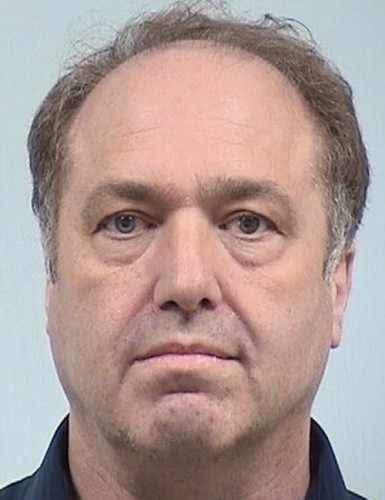Judge Grants Six Motions, Takes Others Under Advisement In Rovenstine Case
ELKHART — A status conference to hear 10 motions in limine (to exclude specific items from being mentioned in the trial) lasted close to two hours today, Wednesday, Feb. 15, regarding the April trial of C. Aaron Rovenstine. The hearing began in Special Judge Evan Roberts courtroom, Elkhart Superior Court 1, during a lunch break of a jury trial. However, time constraints caused the hearing to continue in Elkhart Superior Court 2 to not disrupt the jury trial.
The end result was just over half the motions were granted. One motion was withdrawn
Arguments for and against the motions began at 12:10 p.m. James Voyles and Jennifer Lukemeyer presented arguments for the defense. Matthew Sarber and Tami Napier presented arguments for the prosecution.
Roberts granted motions in limine regarding:
- Introduction of campaign checks given to Rovenstine by Bronson. The two checks, totaling under $500, were never cashed and given unsolicited by Bronson, but erroneously included in campaign financial reports. The defense argued this would be misleading to the jury. While the prosecution argued it spoke of the relationship between Rovenstine and Bronson. Defense agreed to the motion but asked to reserve the right to object if the checks do become relevant.
- Immunity granted to Rockey Goshert, Joe Mooney and Joseph Coutois not being introduced. Counsel for the three individuals have indicated they will not plead the Fifth Amendment. It was agreed that should that occur, mention of the immunity would be noted to the jury.
- Both sides agreed to the state’s motion in limine on 13 points. Many of these points were noted as routine instructions given by the court to the jury. The motion also included admission of previous criminal history spelled out in Indiana Rule of Evidence 609. The defense argued Bronson has made up stories stating the FBI had put him in a witness protection plan and he was involved with double identity. “He’s a pathological liar,” said James Voyles, defense attorney. “We want to make sure when he takes the stand what his record is.”
- No discussion was held on the motion in limine regarding Bronson offering Rovenstine financial resource to buy a golf course, in the amount of $750,000. The state stated it would not be introducing any information regarding this matter.
- An offer by Bronson to pay Rovenstine $100,000, presumably in exchanged for alleged “special privileges.” The state stated it would not be presenting this information as it is not in the will and will be focusing on Bronson’s wills of 2011 and 2015.
- The motion to exclude conversations between David Baker and Kevin Bronson was withdrawn as waiver of privileges were filed by both parties.
Under Advisement
Roberts took under advisement motions in limine regarding:
- Confidentiality agreements Kevin Bronson had jailers sign regarding proof reading his life story for a book and/or movie deal. The defense argued Rovenstine was not party to this. The prosecution argued it established how the relationship between Bronson and Rovenstine developed and Rovenstine was aware of the agreements as they were passed up the chain of command. The prosecution additionally argued it was relevant to the special privileges Bronson received.
- A meeting between Kosciusko County Prosecutor Dan Hampton, Judge Torrey Bauer, Mark Soto and attorney Doug Lemon in 2016 at which time a “plan” was crafted to release or “get rid of” Bronson and have him relocated out of state (California) with a failure to appeal warrant issued that would not be extraditable. The defense argued Rovenstine did not initiate or plan the meeting, nor supported the plan but wanted Bronson taken to the Indiana Department of Corrections. Noting the meeting was held in the prosecutor’s office as part of a plea agreement deal, the prosecution noted there was nothing more relevant as the sheriff could have chosen not to attend. The prosecution further argued this again shows the pre-existing relationship between Bronson and Rovenstine.
- That the investigation into Warsaw Police Officer Paul Heaton was retaliation due to that departments initiation into the investigation of Rovenstine. The defense argued there were allegations against Heaton being investigated prior to the Aug. 14 alleged threat to Heaton by Rovenstine regarding inappropriate behavior. The state argued depending on which detective you speak to there are three different times there was an investigation, several after the alleged threat. Several references were made to case law. The matter of the information being a question of fact was also argued.
- Non-cooperation by KCS jailers and deputies with investigating officers from the Indiana State Police. The defense argued individuals have every right not to participate but this could give the impression there was something to hide. The prosecution stated these individuals would be considered hostile witnesses as there was a culture of silence in the department and would be relevant to wrongdoing and it should be up to the jury to determine why there wasn’t cooperation. It was noted there was evidence through text messages and voice mails encouraging individuals not to speak to investigators, but no direct link to Rovenstine.
Roberts recessed the hearing at 1:50 p.m. Meeting in his chambers with councils for both sides.

